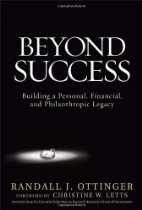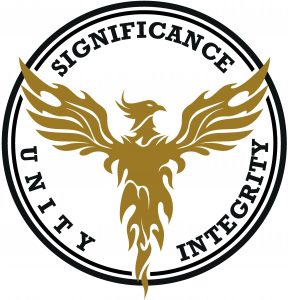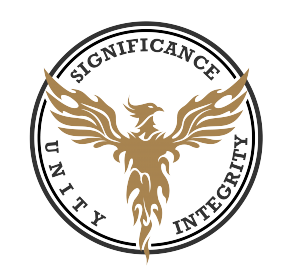In their book, Wealth and the Will of God: Discerning the Use of Riches In The Service Of
Ultimate Purpose, Dr. Paul Schervish and Keith Whitaker recount the following legacy story:
There was an ancient tale in the Middle East about a beautiful ring with magic powers. It made the man who wore it rich, for the ring opened to its owner the door of wealth, God’s love, and the love of other people. This man wished to pass his good fortune to his descendants. He gave the ring to his oldest son and then told his other children to look to that son for guidance and help. That son did the same when he grew old, and so the family enjoyed happiness and wealth for years and years.
Many generations later, however, one inheritor was in a quandary: he had three virtuous sons whom he loved the same. When it was time to pass on the beautiful ring, he could not choose. So he had a jeweler fabricate two exact copies of the ring. He then took each son aside and secretly gave each of them one of the three rings.
When the father died, each son produced his ring and claimed title as master of the family and its fortune. But no one knew which of the three rings was the authentic one. The sons quarreled and with their own supporters divided into camps. Instead of love of others they found hatred. And none found the door to wealth, for they were too busy arguing about the beauty and authenticity of their rings.
But others recalled the ring’s power and searched for the door of wealth. To their surprise, they found that each of the rings could locate the door. But it could open the door only to him who possessed a certain frame of mind. A seeker of wealth had to view the ring with indifference and refrain from grasping at wealth or quarreling over it. The others found that when they had this attitude, they could find the door merely by tracing the outline of the ring. (pp. ix – x)
Many generations later, however, one inheritor was in a quandary: he had three virtuous sons whom he loved the same. When it was time to pass on the beautiful ring, he could not choose. So he had a jeweler fabricate two exact copies of the ring. He then took each son aside and secretly gave each of them one of the three rings.
When the father died, each son produced his ring and claimed title as master of the family and its fortune. But no one knew which of the three rings was the authentic one. The sons quarreled and with their own supporters divided into camps. Instead of love of others they found hatred. And none found the door to wealth, for they were too busy arguing about the beauty and authenticity of their rings.
But others recalled the ring’s power and searched for the door of wealth. To their surprise, they found that each of the rings could locate the door. But it could open the door only to him who possessed a certain frame of mind. A seeker of wealth had to view the ring with indifference and refrain from grasping at wealth or quarreling over it. The others found that when they had this attitude, they could find the door merely by tracing the outline of the ring. (pp. ix – x)
The authors then go on to describe the significance of this story as follows:
Wealth inspires thoughts of legacy, such as an inheritance, which is what the ring symbolizes. But a legacy is not only monetary in nature; it encompasses values and even a way of life….
While wealth can instruct and inspire union and, in the tale, family happiness, it can also incite discord. Because we are human, ownership of riches can generate claims of privilege, prestige, and power that are at odds with love, as shown by the father with three sons. He wants to take care of his family, but he tries to improvise a solution to his dilemma without making a decision. Chaos ensues. And the sons show that while beauty (here, that of the ring) can elevate us, it can also make us put appearances before reality…
The “other people” found that by adopting a peaceful attitude, they could find the door of wealth by tracing the outline of the ring. True wealth, they learn, depends not on things but on our attitudes toward things, on a stance and not on stuff, inspiration rather than inheritance. (pp. x – xi)
While wealth can instruct and inspire union and, in the tale, family happiness, it can also incite discord. Because we are human, ownership of riches can generate claims of privilege, prestige, and power that are at odds with love, as shown by the father with three sons. He wants to take care of his family, but he tries to improvise a solution to his dilemma without making a decision. Chaos ensues. And the sons show that while beauty (here, that of the ring) can elevate us, it can also make us put appearances before reality…
The “other people” found that by adopting a peaceful attitude, they could find the door of wealth by tracing the outline of the ring. True wealth, they learn, depends not on things but on our attitudes toward things, on a stance and not on stuff, inspiration rather than inheritance. (pp. x – xi)
From my experience, legacy planning is composed of two main elements: 1) how you align your time, talents, and treasures with your values and aspirations while you are alive (laying the foundation of your legacy); and 2) what you leave or pass down to those who follow you, including your values AND your valuables (the legacy). In working with affluent families and prosperous businesses, I often find that both these elements are missing from their financial plans, estate plans, and business succession plans. The main reason for this omission is that “legacy” is too often mistaken for simply being a bequest or transference of assets. Although your assets and valuables are part of your estate plan, I would suggest that your values and your life story are the real treasures that you should be protecting, growing, and preserving in your legacy plan.
The best way to visualize the legacy process is as follows…

In his book, Beyond Success, Randall Ottinger describes three key junctions in our lives (pp.15-16):
- The success junction is the point at which decisions are made based on what success means for an individual and family. It is also the point at which individuals determine how much is enough for themselves and their heirs.
- The significance junction is the point at which decisions are made concerning one’s purpose in life and how this influences how one spends his or her time.
- The generational junction is the point at which decisions are made with regard to what individuals want to last within their families, including family values, family history, and family businesses.
Randall goes on to say (p. 16),
It is only when people are satisfied with their financial success that they can begin to shift their personal identity beyond that of a wealth builder….and what we term the wealth divide…As a result, they have shifted how they view themselves from that of a wealth builder to that of a legacy builder.
So your tasks for leaving a positive legacy are as
follow…
follow…
- Seriously think about what your life would be devoted to if you had to choose only one thing. Would it be making money, building a business, taking care of your family, being a great friend, serving your country, Kingdom Building for God, etc. Once you have successfully completed the previous six steps, you should begin to have a strong sense of what the answer to this question will be for you. In dealing with affluent families who have not been exposed to the previous six steps, I find their answer is typically based on a wish or their aspirations.
- Contemplate the significance of the following statements and decide which ONE statement best describes your current situation and which OTHER statement, if any, would better describe your ideal situation. If you do not happen to have children, simply substitute in whoever your beneficiaries will be:
- My children are aware of my core values and what the common mission is for our family.
- My children are aware of my core values but do not know the common mission for our family.
- My children are aware of my core values PLUS I am leaving them a significant inheritance to empower their unique abilities and carry on our family mission.
- My children are aware of my core values PLUS I am leaving them a significant inheritance to do what they want.
- My children are not aware of my values BUT I am leaving them a significant inheritance to do what they want. f) My children are not aware of my values AND I am not leaving them a significant inheritance.
RECOMMENDED RESOURCES

You’ve worked hard to achieve financial success, and now you want to leave a legacy. You want to know how others like you have made a positive impact with their time and assets. You want to safeguard your money, help others, and do the best for your children-without ruining their motivation to make their own way in the world. But ultimately, you want your contributions to matter.
Beyond Success is the first thorough guide that assists individuals with the achievement of a meaningful and lasting financial, philanthropic, and generational family legacy. As a financial and philanthropic expert, Randall Ottinger combines his personal experiences in both fields with extensive research that draws on insights from hundreds of legacy leaders such as Bill Gates Sr., Jeff Brotman of Costco, and Sandy Weill of Citigroup, as well as thought leaders and advisors in the philanthropy and family wealth professions.
Ottinger reveals best practices and strategies you can adopt to:
- Turn money into a meaningful and fulfilling legacy
- Make wealth a positive force in your family
- Avoid the common pitfalls of family wealth transfers
- Prepare children for money
- Achieve social impact through “portfolio” philanthropy practices
- Preserve wealth, values, and enterprises across future generations
Ottinger develops a legacy planning framework to help translate your goals into measurable action steps for achieving the highest levels of personal fulfillment and social impact. He also provides insights into the latest trends in philanthropy, and examines the likely impact on the civil sector of the $100 trillion of wealth that is transferring from today’s baby boomers to future generations.

